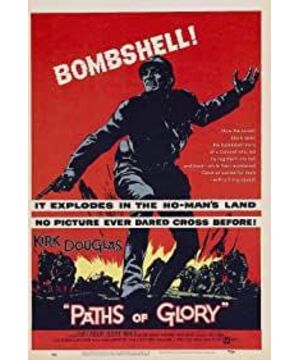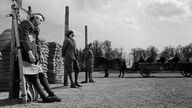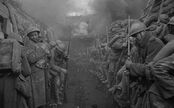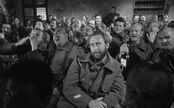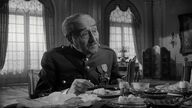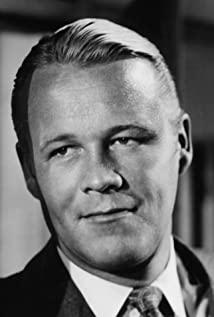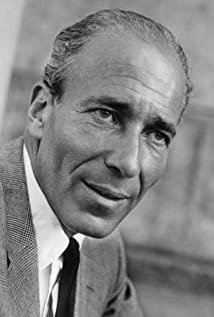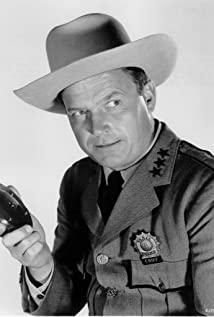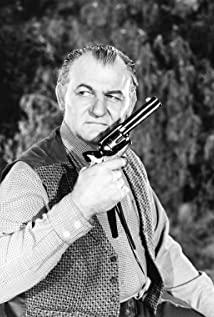A review written 7 years ago.
Last Saturday I watched the paths of Glory, a film directed by Stanley Kubrick. The story was situated in France during the WWI. At first, I thought it would be about an ordinary battle between France and Germany. And I was eager to know how brave French soldiers were and what plots and tricks the French used to defeat its enemy. As the story unfolded, I found that I was totally wrong. It had placed little emphasis on the actual course of a battle. Rather, it concentrated on what happened behind the scene of warfare. There is nothing fancy or cool about any war. It is sheer cruelty. If there is anything else, that should be hypocrisy. Being on the right side or the seemingly righteous side of a war would not wipe out the filth and ugliness war breeds. The story began with not so wise a military action proposed by General Paul Mireau,who tried to persuade General George Broulard to take this mission. The latter initially refused and said he wouldn't risk his soldiers' life on such a suicidal attack. But when General Mireau brought up the possibility that another star might be added to Broulard's badge , in a casual manner, the arrogant Broulard took the bait. He then ordered Dax, the colonel of regiment 701, to launch the attack the next day. It was a doomed failure. After being refused by the artillery officer the ridiculous command to bomb at their own regiment, General Broulard blamed the military defeat for the cowardice of the soldiers. Then three soldiers were selected and sent to the court martial. After a brief trial leaving no room for defense, the accused were found guilty.The latter initially refused and said he wouldn't risk his soldiers' life on such a suicidal attack. But when General Mireau brought up the possibility that another star might be added to Broulard's badge, in a casual manner, the arrogant Broulard took the bait . He then ordered Dax, the colonel of regiment 701, to launch the attack the next day. It was a doomed failure. After being refused by the artillery officer the ridiculous command to bomb at their own regiment, General Broulard blamed the military defeat for the cowardice of the soldiers. Then three soldiers were selected and sent to the court martial. After a brief trial leaving no room for defense, the accused were found guilty.The latter initially refused and said he wouldn't risk his soldiers' life on such a suicidal attack. But when General Mireau brought up the possibility that another star might be added to Broulard's badge, in a casual manner, the arrogant Broulard took the bait . He then ordered Dax, the colonel of regiment 701, to launch the attack the next day. It was a doomed failure. After being refused by the artillery officer the ridiculous command to bomb at their own regiment, General Broulard blamed the military defeat for the cowardice of the soldiers. Then three soldiers were selected and sent to the court martial. After a brief trial leaving no room for defense, the accused were found guilty.in a casual manner, the arrogant Broulard took the bait. He then ordered Dax, the colonel of regiment 701, to launch the attack the next day. It was a doomed failure. After being refused by the artillery officer the ridiculous command to bomb at their own regiment, General Broulard blamed the military defeat for the cowardice of the soldiers. Then three soldiers were selected and sent to the court martial. After a brief trial leaving no room for defense, the accused were found guilty.in a casual manner, the arrogant Broulard took the bait. He then ordered Dax, the colonel of regiment 701, to launch the attack the next day. It was a doomed failure. After being refused by the artillery officer the ridiculous command to bomb at their own regiment, General Broulard blamed the military defeat for the cowardice of the soldiers. Then three soldiers were selected and sent to the court martial. After a brief trial leaving no room for defense, the accused were found guilty.Then three soldiers were selected and sent to the court martial. After a brief trial leaving no room for defense, the accused were found guilty.Then three soldiers were selected and sent to the court martial. After a brief trial leaving no room for defense, the accused were found guilty.
Samuel Johnson once said, “Patriotism is the last refuge for a scoundrel”, this is a perfect depiction of General Broulard. He talked about the predicted casualty of the planned attack in a matter-of-fact tone as if he was talking about what he was going to eat for lunch; and in his mind, those sacrifices were necessary and honorable because it was for the good of the nation and the French people. Patriotism was only a weapon against those who would dare to stand in the way towards his Glory. On the contrary, Colonel Dax was upright and sensible. He knew what the consequences would be of that attack, reasoned with General Broulard though his advice found no ear, he cherished the life of soldiers, he ran in front of the regiment in the battle field, and he defended whole-heartedly for the three unfortunate scapegoats at the court martial. However,his conscience could not save the poor guys' life. To these guys, life was so precious, they fought the war courageously, simply because their wives and children were waiting for them to come home after the war ceased. But those officials played with others ' life as if they were playing chess game. And the victory, built upon the bodies of countless soldiers, was a chip for them to gain promotion and political stakes. These soldiers were punished through no fault of their own.was a chip for them to gain promotion and political stakes. These soldiers were punished through no fault of their own.was a chip for them to gain promotion and political stakes. These soldiers were punished through no fault of their own.
It was unfair, but it was real. It had happened, and it would happen again and again as long as war lives. But, before death, who could remain undaunted? No man could conquer the fear and resentment of death, especially that of an undue one. No Father or any religious belief could relieve them. Just as those three characters that refused to believe that death would actually come down upon them, I would not believe until the last scene, when they were actually escorted to the execution ground . I thought there would be a miracle, especially when I saw Colonel Dax gave General Mireau the evidence of what General Broulard had done wrong, I thought General Mireau could do something after his party was over. It turned out that he neglected the request, and simply used it to get rid of his rival, General Broulard. The brutal truth was,there was no miracle. The three men were shot dead at the end. Their hope of surviving the war was crush like a nutshell. Life was so fragile in the war. In the evening before the final destiny came, one of the solider, Private Arnaud himself compared to a cockroach, and thought he was even more pathetic than this lower life even it could outlive him. Then Corporal Paris smashed the little cockroach and said to Arnaud that then he could live longer than the cockroach. Although they could decide the fate of such a little pest, they could not decide their own. This was sarcastic, and, bitter. The hierarchy in the army determined that they could only be thus helpless before the injustice since their classes were lower. What they could choose was the gesture of their dying, to die with or without dignity,which we could see from the behavior of them in the last scene. Paris managed to put himself together, held his head up and refused to let his eyes be covered by a cloth. He was decent when he died, worthy of his name.
And for those who had died for the course, whose names appear in the history books and who had won great respect and honour behind, I guess it was only the second-best choice for them. If there was no war, would they choose to die?
Who was the real murderer of thousands of soldiers died in the war? The immediate answer would be the wicked enemy. Is it really the case? Soldiers from different sides were only carrying out the orders from above; they had no personal hatred against each other . In the battle field, they were weapons or killing machines, but not humans. Killing or being killed, as Thomas Gray's Elegy written in a country churchyard goes, “The paths of glory lead but to the grave”.
View more about Paths of Glory reviews


